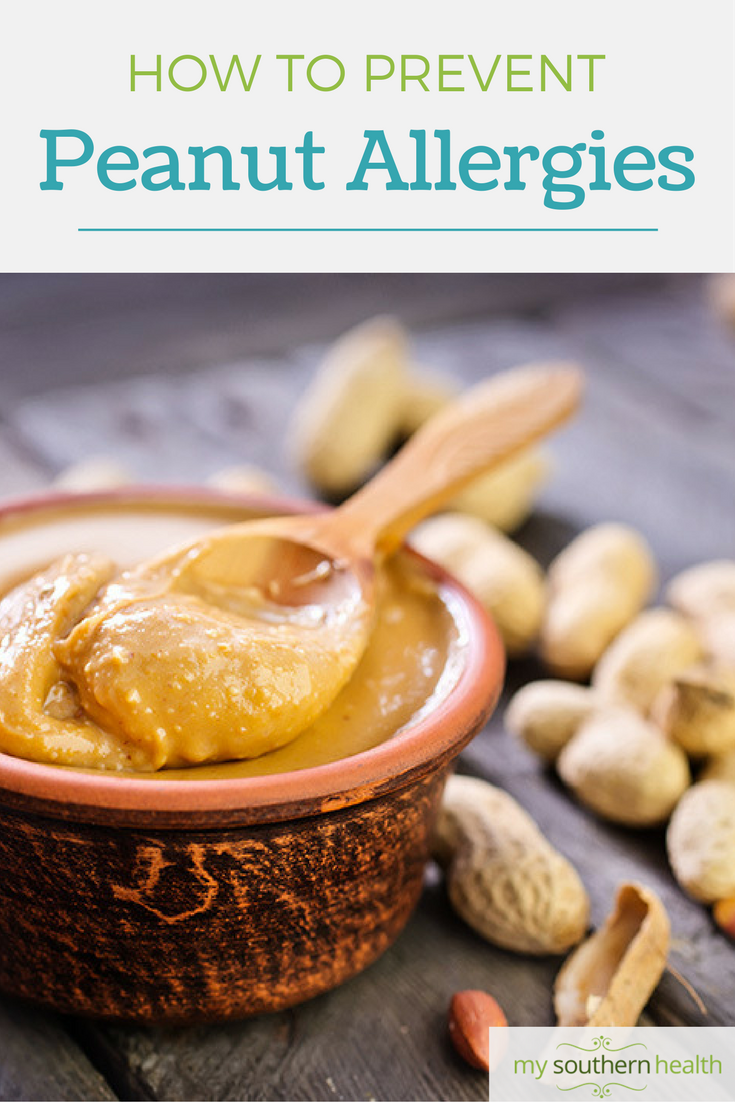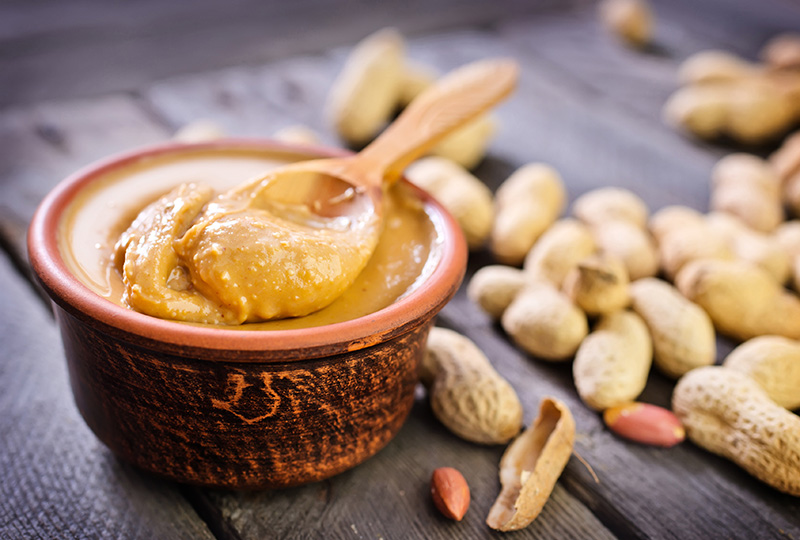New peanut allergy recommendations guide parents on the safety of introducing peanuts to babies.
One of the most common questions we hear in the Vanderbilt Pediatric Allergy Clinic from the parents of infants is, “When is it safe to introduce peanut to my baby?” There is good reason for confusion on this issue: The recommendations provided by pediatricians and allergists over the last 20 years have changed dramatically to help parents who want to know how to help prevent peanut allergies in their babies.
The good news is that the National Institutes of Health just released new peanut allergy recommendations answering this exact question: The 2017 Addendum Guidelines for the Prevention of Peanut Allergy in the United States, which are based on exciting new research.
Why the new change? A groundbreaking study called the LEAP (Learning Early About Peanut) trial was published in 2015 that examined early vs. late introduction of peanut to children, focusing on kids that are considered at high risk of developing peanut allergy. This study showed that in those children that were introduced to peanut early in life, there was a 70 percent reduction in the prevalence of peanut allergy compared to the group that had completely avoided peanut when both groups were tested at 5 years of age. The study concluded that not only was early introduction safe, but it also seemed to prevent the development of peanut allergy in high-risk children who consume peanut on a regular basis. Subsequent studies have supported these findings.
If you are a new parent, you may be asking “What does this mean for my baby?” The new NIH guidelines stratify their recommendations of how peanut should be introduced into three groups of infants, based on some risk factors.
The first group is infants with no history of eczema, and no history of a reaction or allergy to any other foods. For this group, it is recommended to introduce peanut in an age appropriate manner in accordance with family or cultural practices, but usually around 6 months of age.
The second group is infants with mild to moderate eczema (typically eczema that requires treatment with topical prescription medications). For these infants, peanut can again be introduced safely at home, ideally around age 6 months.
The third group of infants either have severe eczema (poorly controlled despite topical steroids), or a diagnosis of egg allergy. These infants should be seen by a pediatric allergist for further testing before introducing peanut. However, the goal after appropriate evaluation is still early introduction of peanut, at age 4-6 months, if it is determined to be safe.
What about infants who have an older sibling that already has a peanut allergy or another food allergy? We recommend these families talk to their pediatric allergists, but the potential benefit of early introduction applies to these children as well.
These new guidelines will hopefully provide clarity and reassurance to new parents and pediatric providers about the safety and benefits of introducing peanut early into a child’s diet. The research behind food allergy is rapidly evolving, and we look forward to updating our patients on exciting new developments in this field. Remember, do not give actual peanuts to any child less than age 5 as this is a choking hazard. There are age-appropriate recipes for peanut introduction available at this link.
This post was written by Amanda Pratt, M.D., Allergy/Immunology Clinical Fellow, and Jonathan Hemler, M.D., Assistant Professor of Pediatrics, Allergy/Immunology at Vanderbilt University Medical Center.


If you have any questions or would like to try and introduce peanut to your baby, the Vanderbilt Pediatric Allergy Clinic can help. Call 615-936-5697. The clinic is located in the Vanderbilt One Hundred Oaks outpatient center, 719 Thompson Lane in Nashville, and also at the Edward Curd Lane multispecialty clinic in Franklin.

